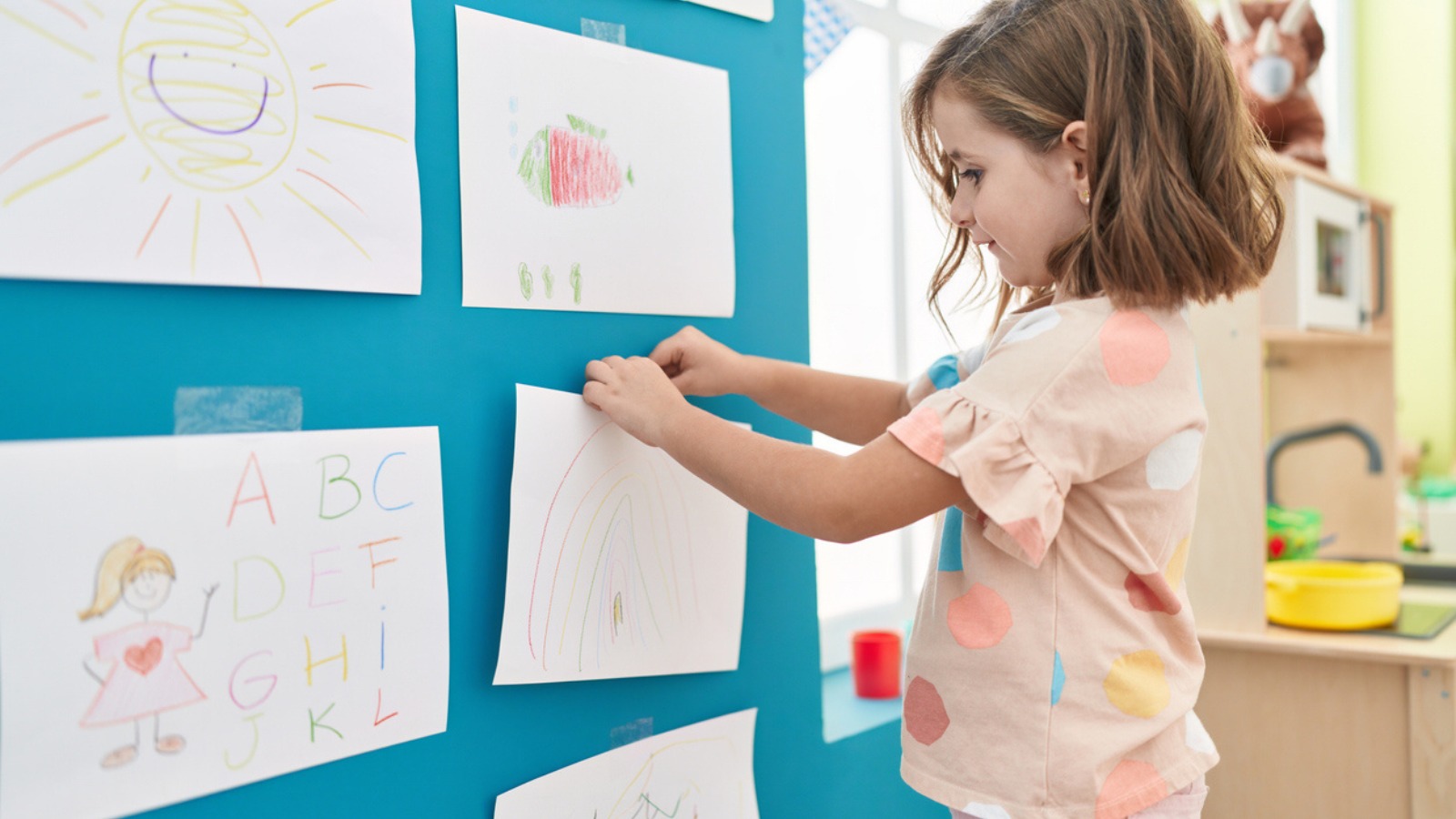How the school plans creative experiences to deepen pupils’ learning about the history and culture of their local community.

Quick links:
Information about the School
Ysgol Gynradd Nefyn is located in the small town of Nefyn on the north coast of Pen Llŷn in Gwynedd. It serves the town and the surrounding rural areas, providing education for pupils aged between 3 and 11 years. Pupils from Ysgol Morfa Nefyn join the school in Year 4. There are 137 pupils on the school roll, including 18 children of nursery age. Eleven per cent of pupils are eligible to receive free school meals and 8.4% of pupils are on the additional learning needs register. Approximately 76% of pupils speak Welsh at home.
Context and background to the effective or innovative practice
At Ysgol Gynradd Nefyn, they provide rich creative opportunities for pupils to develop personally and educationally, setting down an anchor of care and well-being for each child before they sail the waves. The school aims to ensure an education of the best possible quality for all pupils in line with their age, ability and interests so that they grow into complete personalities, develop and practice all their talents, and apply themselves to be full members of their community.
Ysgol Nefyn has a clear vision which ensures that pupils develop into enterprising, independent, confident and creative individuals. Learners are encouraged and empowered to be creative and innovative. Ysgol Gynradd Nefyn’s curriculum is broad and balanced and focuses on developing pupils’ creative skills, whether in art, drama or music, in cross-curricular activities aimed at developing pupils’ literacy, numeracy and digital competence skills together with their well-being.
The school focuses on fostering pride in their pupils in their locality and in their country and developing respect within them for the world in which they live, in a general sense and more specifically in the context of their locality and their environment. As such, teachers plan creative and rich experiences for learning about the local area and beyond. By engaging with the expressive arts, pupils have numerous opportunities to explore with confidence their own culture, differences within their locality, and the history of the local area.
Description of nature of strategy or activity
At Ysgol Gynradd Nefyn, staff ensure that learners have creative, varied and interesting opportunities by providing them with a curriculum that is relevant, differentiated, broad and balanced.
The vision contained in the school’s curriculum is focused on developing pupils’ skills as they take pride in their ‘cynefin’ (or local area), their heritage and the culture of the community. The whole school community has been involved in creating the vision which focuses on providing high-quality learning experiences which stimulate and motivate learners in the classroom and beyond.
The headteacher makes regular use of various grants in order to organise highly effective visits and workshops that broaden horizons and deepen pupils’ skills in art, drama and music. An example of this is cooperation with local artists and national poets to create poetry and a mural reflecting the history of the local community. By discovering facts and historical information about local names, pupils’ self-esteem and pride in their ‘cynefin’ is strengthened.
The motivational visits and workshops weave together opportunities to develop literacy, numeracy and ICT skills effectively. For example, providing purposeful opportunities for pupils to write a story and develop it to create an animation film about the history of Nefyn’s herring fishermen. Such experiences provide rich opportunities for pupils to deepen their understanding and knowledge of the lives of residents, past and present. These learning experiences also deepen pupils’ understanding of their local area and their history. For example, they understand the advantages of living in the area and the effect of second homes in the area through creating and performing a rap ‘hawl i fyw adra’ (the right to live in our home).
Teachers organise a wide range of events in partnership with the community which reinforce pupils’ sense of belonging. For example, pupils learn about local fishermen in the Maritime Museum, write poems and make artwork on the beach, and visit the old people’s home regularly to communicate and perform.
All of these learning experiences are planned with care and there is a clear place for the pupils’ voice and needs in learning plans.
What impact has this work had on provision and learners’ standards?
Teachers have a constant focus on planning creative experiences to deepen pupils’ learning about the history and culture of their local community, and this has developed and continues to develop pupils’ literacy, numeracy, ICT and creative skills extremely effectively. Pupils’ oracy skills have been improved successfully, for example through using a suitable range of vocabulary and language patterns to compose and perform a sea shanty and to take part in various drama workshops. The ‘Creu Cadwyni Cymru’ enterprise project provided a suitable medium for developing pupils’ numeracy skills as they learned about costs and profit. Cooperation with well-known local artists and musicians has succeeded in developing pupils’ pride in the Welsh language and Welsh culture. Artwork is displayed attractively on school walls, and raps, compositions and poems have been both memorised and stored digitally.
Rich creative and practical experiences provided at the school have enabled pupils to develop into enterprising and creative learners. They are provided with educational experiences of the best quality in an environment and atmosphere where they can grow, develop and mature to become confident individuals, aware of the well-being of others, and responsible members of society.
How have you shared your good practice?
The North Wales consortium, GwE, has shared the good practice seen in pupils’ workbooks with other schools across the region and teachers from other schools have come to observe good practice at the school. Pupils’ creative work is given a platform regularly within the community in shop window displays.